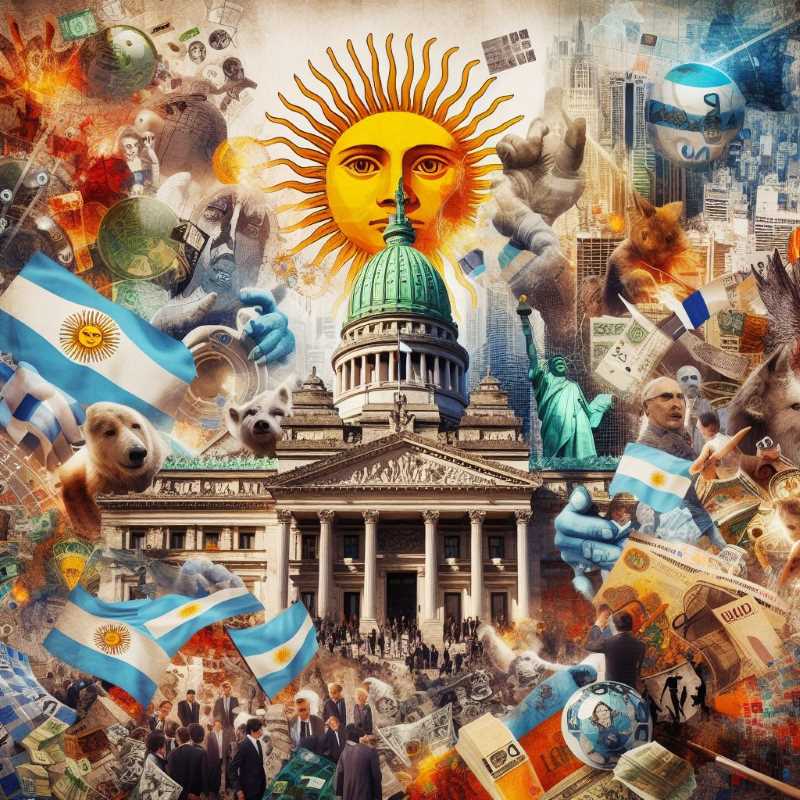Promises and Pitfalls of Argentina's New Leadership
Javier Milei's rise to power in Argentina, fueled by libertarian promises, faces skepticism amid economic hardships and governance challenges. With alliances questioned and democracy tested, his presidency embodies a tumultuous tango between hope and uncertainty in the country's political landscape.

In the frenzied tango of Argentine politics, where ideologies collide and alliances shift like dunes in a desert storm, one man emerged like a comet streaking across the sky – Javier Milei. With his fiery rhetoric and unorthodox blend of economic libertarianism and political conservatism, Milei catapulted onto the national stage, promising a seismic shift in Argentina's political landscape. But as the dust settles from his tumultuous rise to power, questions linger: Was Milei's ascent merely a fleeting moment of rebellion, or the dawn of a new era in Argentine politics?
The saga of Milei's ascent to power reads like a chapter torn from the pages of a surrealist novel, where reality bends and twists with each turn of events. From his humble beginnings as an academic provocateur to his meteoric rise as Argentina's unlikely president, Milei's journey is a rollercoaster ride through the labyrinth of Argentine politics.




